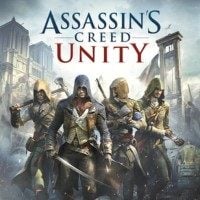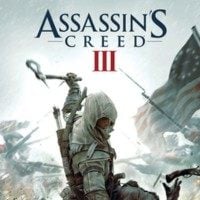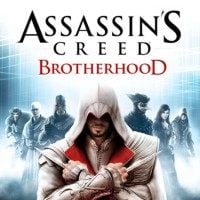Apple on the Moon – the Apollo 11 mission. History According to Assassin's Creed - Conspiracy Theorist's Paradise

- History According to Assassin's Creed - Conspiracy Theorist's Paradise
- Peloponnesian War
- Adolf Hitler – Nazi puppet of the order
- Assassination of Caesar – Et tu, assassin, contra me?
- Jesus of Nazareth
- Conquests of Genghis Khan
- October Revolution – Stalin's secrets
- Apple on the Moon – the Apollo 11 mission
Apple on the Moon – the Apollo 11 mission
The space race, which lasted for more than two decades, was one of the few hopeful chapters of the Cold War that before the fall of the Soviet Union – the fierce rivalry between the Soviets and the Americans, between Communism and Capitalism, became the driving force of rapid technological development. The peak of this extraterrestrial flexing was undoubtedly the launch of Saturn V, the most powerful space vehicle ever launched by mankind, as part of the Apollo 11 mission, which took Neil A. Armstrong, Michael Collins, and Edwin E. Aldrin Jr. to the Moon and back in July 1969. Effects? The first solar wind experiments on our natural satellite, more than 20 kilograms of samples of lunar rocks and soil, not to mention the cultural and political significance of the entire endeavor, which was broadcast on television around the globe.
As we learn from one of the puzzles in Assassin's Creed II, the real purpose of the Apollo 11 mission was not to gain more knowledge or even outclass and humiliate the Soviets. The whole thing turned out to be a plot of the Templars, who, under the guise of a space race, sent a man to the Moon to find one of the Apples of Eden – the artifacts that allow control of human minds. The president of the United States, Lyndon B. Johnson, was well acquainted with the true intentions of the order – for he himself was a member of it. He thus proved to be an ideal candidate to replace John F. Kennedy, who had crossed Abstergo Industries by proposing a joint, American-Soviet space mission. The Templars even put one of their own men – Buzz Aldrin – on a spaceship, and ultimately it was he who returned to Earth with the Apple.
One of the most interesting facts about the Apollo mission from conspiracy perspective is the crucial contribution made to it by scientists who had emigrated from Nazi Germany to the United States (see Operation Paperclip). Most of them held high positions in the Nazi Party and should have been brought before the International Military Tribunal at Nuremberg immediately after the end of the war, but the Americans knew better than to kill or imprison some of the brightest people on the planet. The most famous of these was Werner von Braun, an SS officer who designed the V-2 ballistic missile for the Third Reich – a missile that was able to rain terror on London. After the war, he developed the Saturn V.
While the alternate history depicted in Assassin's Creed II hardly makes any sense, there is no shortage of people who doubt the authenticity of the entire Moon landing. A survey completed in Russia in 2000 revealed that 28% of Russians didn't believe the Moon landing was real. Similar results for UK were reported by the British magazine Engineering & Technology in 2009. There also is no shortage of skeptics in the United States. In February 2001, shortly after a program called Conspiracy Theory: Did we Land on the Moon? was aired on FOX, the TV outlet reported that one in five Americans doubted the official version of events. Evidence? The flag (there is no wind on the Moon), no stars in the photos, exceptional quality of video and photography and much, much more. NASA of course denies, but there's plenty of people staying the whole thing was written and directed by Stanley Kubrick.









